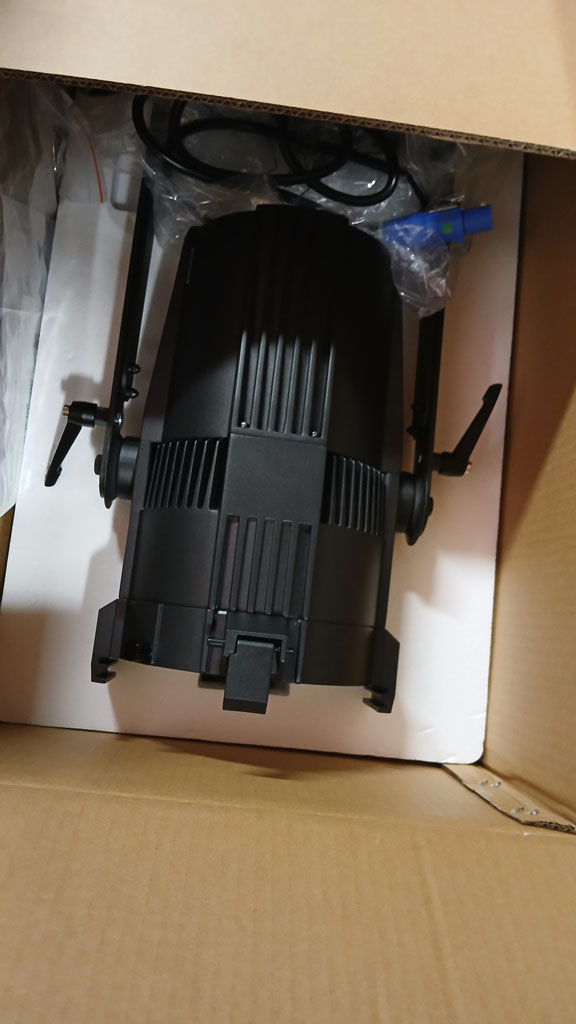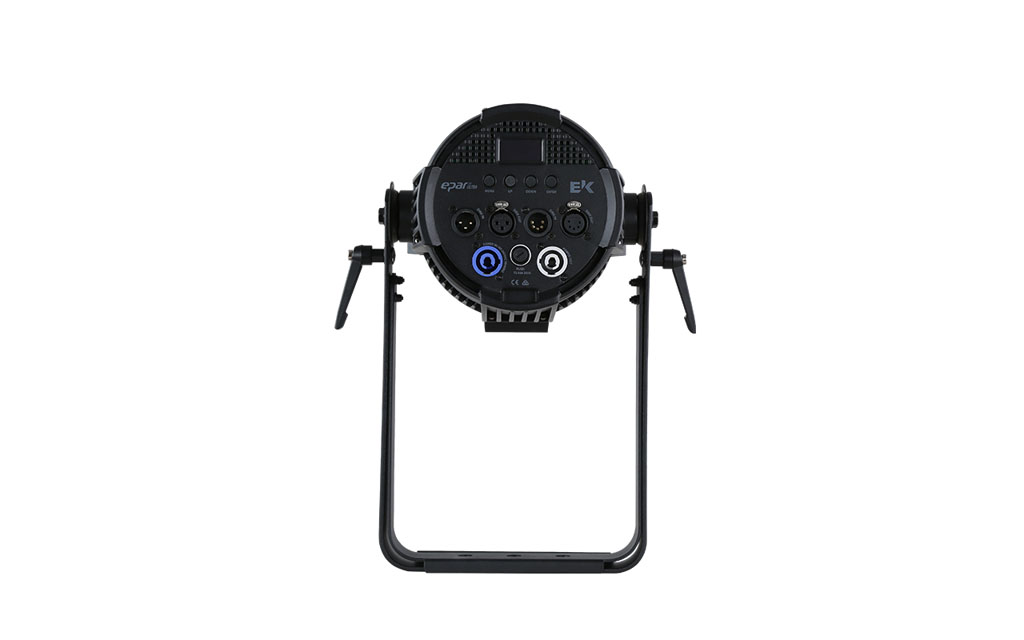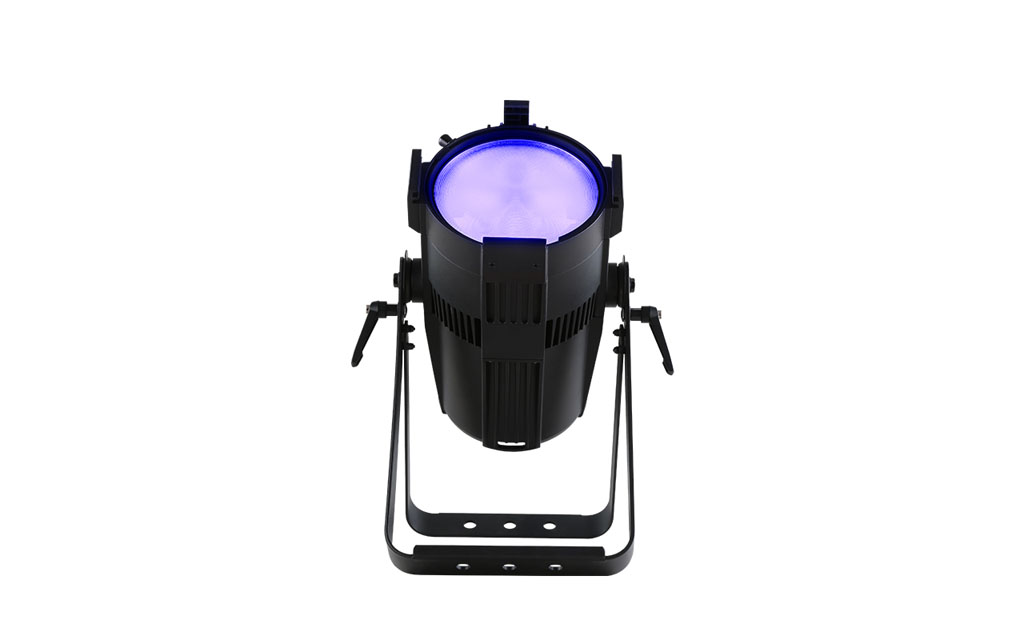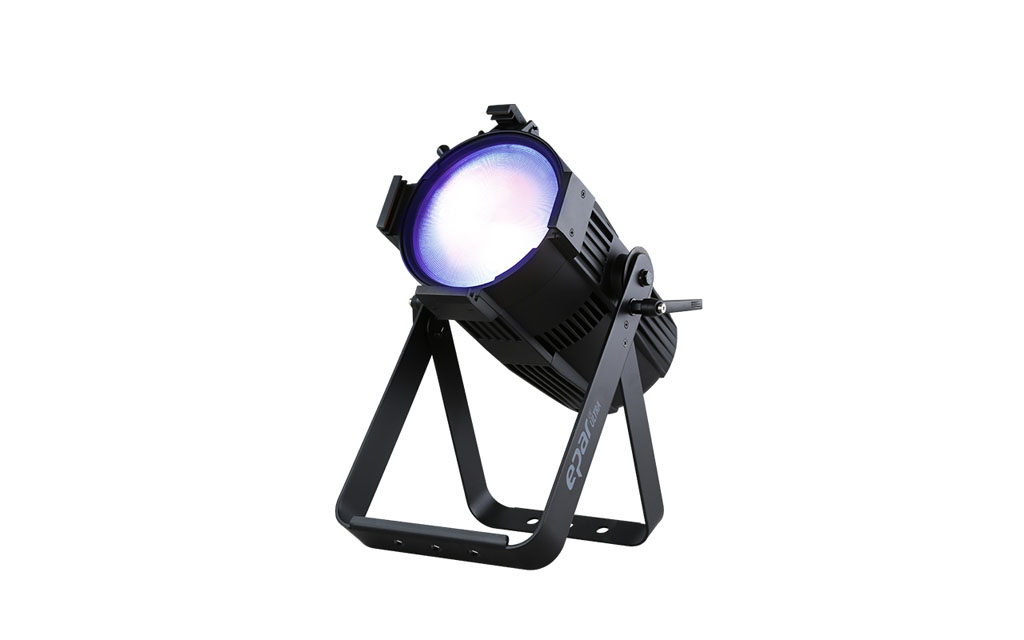Lighting designers and production managers have been all too happy to specify LED moving-head lights for their shows and tours. However, there’s some hesitation when it comes to spec’ing LED UV fixtures, with many preferring to stick with conventional, or fluorescent, UV.
LED lighting for live events has come a long way in recent years, but there’s still room for improvement. One area where the slow pace of advancement has been most noticeable has been in the realm of UV lighting. But that’s starting to change.
Of course, purists have claimed that there’s no such thing as LED UV. On the electromagnetic spectrum UV (or ultraviolet) falls between the range of 10 and 400nm (nanometres). In the past, typical LED lights that claimed to be UV sat at about 400nm. To the naked eye this has tended to look purple, as at 400nm the wavelength is still technically in the violet range on the visible spectrum (380-450nm), even though there’s an overlap between violet and ultraviolet. This can, of course, be great for colour mixing but it doesn’t give you that ‘true UV effect’.
The ShowPro LED ePAR UV meanwhile has a 127W COB LED engine, which outputs 230 lumens at a wavelength of 365nm – safely inside the ultraviolet spectrum. This gives the fixture a strong UV presence with less of that purple light. It also has a detachable front lens with different available zoom options in the range.

COB stands for ‘Chip On Board’ – a newer technology that allows the LED chip to be mounted directly on the substrate. This results in higher intensity and greater uniformity of light, and is a more efficient method of manufacturing ‘lumen-dense’ LED arrays. We will likely see more COB LEDs moving forward, especially amongst battery-powered units and compact fixtures.
Typically, the human eye will respond to (be able to see) any wavelengths between 380 and 750nm on the electromagnetic spectrum. This small range is often known as the ‘visible’ spectrum. Here, there are six basic colours; the same six you will find in a rainbow. Other colours like magenta and teal are formed by mixing these colours:
- Violet: 380 – 450nm
- Blue: 450 – 495nm
- Green: 495 – 570nm
- Yellow: 570 – 590nm
- Orange: 590 – 620nm
- Red: 620 – 750nm
On either side of these colour ranges are ultraviolet and infrared.
The process where certain objects appear to glow under UV light is known as photoluminescence. I’m sure we all have a bit of an idea what UV light will make glow, but did you know that it will also pick up the following:
- Tonic water
- Honey
- Eggs
- Chlorophyll
- Scorpions
- Platypus
- Some dental work and teeth whiteners
- Radiator coolant
- Petroleum jelly
- Olive oil


The Light’s Construction
The ShowPro LED ePAR UV is made from a lightweight die-cast aluminium. It’s a fairly compact light that weighs in at a mere 5.5kg. It’s sturdy and well put together, and perfectly suited to life in a venue as an install fixture or being moved around as part of the inventory of a production company. It basically weighs the same as your typical LED par, and with dimensions of 450 x 316 x 208mm, the LED ePAR UV only needs a single clamp. It’s an easy one-person lift and light enough to be hung at any orientation. Construction is simple and solid, with no user-serviceable parts. Maintenance therefore consists only of cleaning and little else.
Optics, Colour & Brightness
As for brightness, you don’t see the full light itself, for obvious reasons. As mentioned, being UV, it sits outside the visible spectrum. Just don’t stare into the light when it’s on. Of course, when you shine the light at anything UV sensitive, that’s when you’ll notice it. In that event, you will find that it’s very punchy. It works well on UV paint, white clothing and even dandruff! Once you see the ShowPro LED ePAR UV in action in the metal, there’s no question as to whether it’s a ‘real’ UV light.
Applications and Features
The features list for this light is far shorter than many others we see. In fact, it could probably more accurately be classed as an effect more than a light. It’s a one-trick pony, no question: it doesn’t move or change colour, there are no gobos, no shutters… nothing like that. It’s a static LED UV par with an output that’s technically in the pure ultraviolet range. So while it’s a fantastic UV light, make no mistake, it’s nothing else. It does not double as a regular LED par. It does one thing and does that exceptionally well.
Control and Programming
Both three-pin and five-pin XLR in/out can be found on the ShowPro LED ePAR UV. RDM is available as well. It can be operated in either 1, 2, 3 or 6-channel mode, meaning you could put a lot on one universe, where you will likely have signal issues before you run out of space in the patch. The light has four different dimming curves, comes with a number of different lens options, depending on how wide or narrow you want your shot to be, although it’s worth noting here that these lenses have to be manually fitted. Power is delivered via Powercon in/out, and with a draw of 127W, you can get quite a few units on a single 10-amp circuit.
Verdict
If you want a proper (365nm) LED UV, not a 400nm black light, then this is the light for you: a true LED UV Par. Part of me would like to have seen this fixture pan, tilt and zoom, and be available as an IP-rated version that you could stick outside. I also wonder if a flood would have been more effective than a par. On the other hand, adding these features would likely only have made the ePAR UV prohibitively expensive. In the end, the focus of this unit is its COB LED UV light source, and in this regard, ShowPro have knocked it out of the park.
Outside of nightclub and dance party-style events, we don’t normally see UV lighting, except in very specific circumstances. I don’t know if the availability of cheaper, more convenient LED-based UVs will do much to change this fact, nonetheless true UV capability adds a noteworthy addition to the repertoire of what modern LED lighting can achieve.
www.showtech.com.au/product/led-epar-uv/
The Specs
- Lamp Source: 365nm UV COB LED
- Angle: 36°
- Field angle: 56°
- Dimming: four dimming curves Output (lux): 230lm
- Strobe: 0-30Hz Protocol: DMX, RDM DMX channels: 1CH/2CH/3CH/6CH
- Data connections: three-pin and five-pin XLR In/Out for DMX
- Mains: 100-240 VAC, 50/60Hz
- Consumptions: 127W @ 230V
- Power connections: powerCON In/Out
- Onboard menu: OLED display with 4-button
- Cooling: Active (variable speed fan with silent mode)
- Material: Die-cast aluminium
- Finish: Matte black
- Dimensions: 450 x 316 x 208mm
- Weight: 5.5KG


